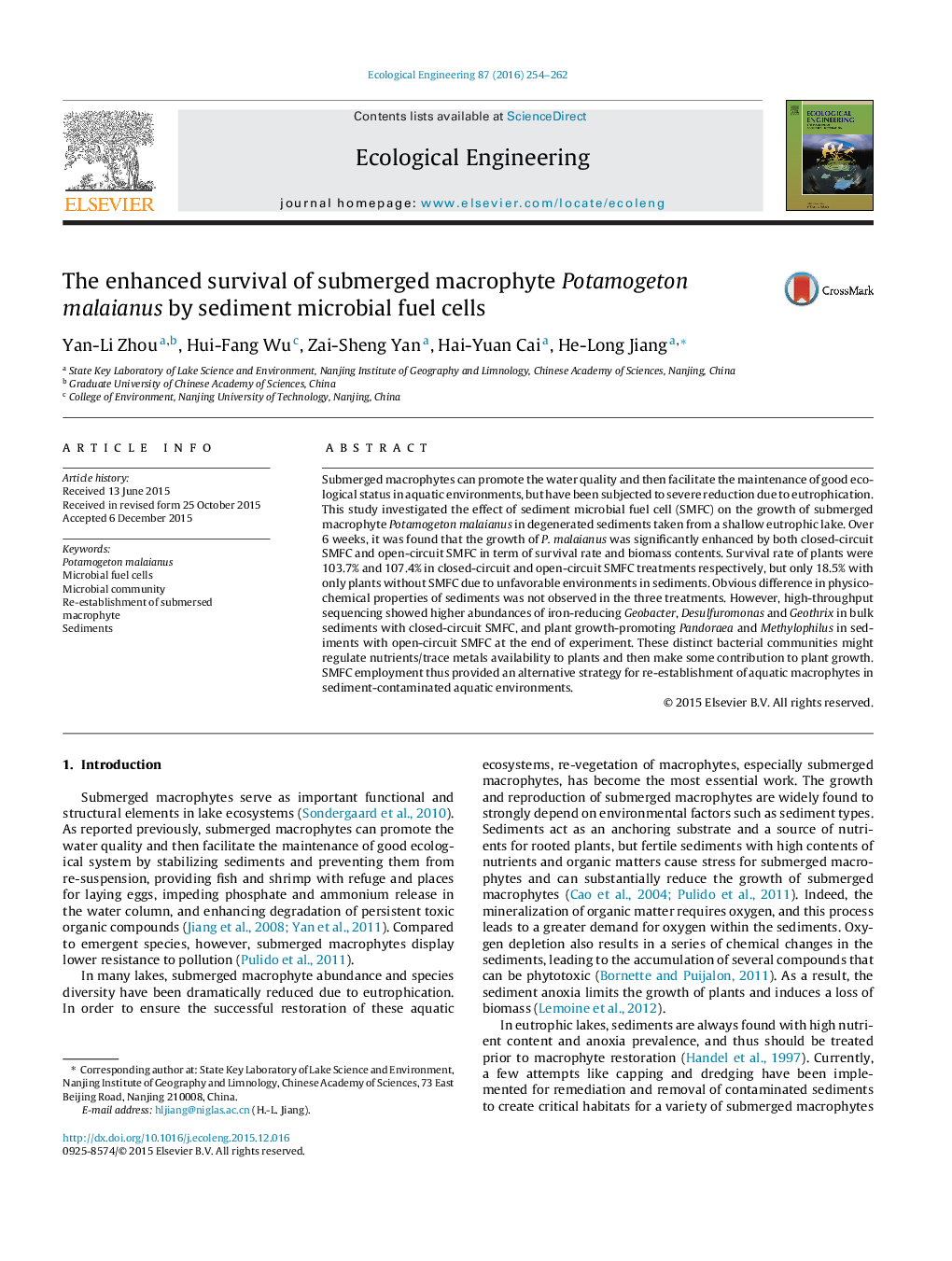| Article ID | Journal | Published Year | Pages | File Type |
|---|---|---|---|---|
| 6301511 | Ecological Engineering | 2016 | 9 Pages |
Abstract
Submerged macrophytes can promote the water quality and then facilitate the maintenance of good ecological status in aquatic environments, but have been subjected to severe reduction due to eutrophication. This study investigated the effect of sediment microbial fuel cell (SMFC) on the growth of submerged macrophyte Potamogeton malaianus in degenerated sediments taken from a shallow eutrophic lake. Over 6 weeks, it was found that the growth of P. malaianus was significantly enhanced by both closed-circuit SMFC and open-circuit SMFC in term of survival rate and biomass contents. Survival rate of plants were 103.7% and 107.4% in closed-circuit and open-circuit SMFC treatments respectively, but only 18.5% with only plants without SMFC due to unfavorable environments in sediments. Obvious difference in physicochemical properties of sediments was not observed in the three treatments. However, high-throughput sequencing showed higher abundances of iron-reducing Geobacter, Desulfuromonas and Geothrix in bulk sediments with closed-circuit SMFC, and plant growth-promoting Pandoraea and Methylophilus in sediments with open-circuit SMFC at the end of experiment. These distinct bacterial communities might regulate nutrients/trace metals availability to plants and then make some contribution to plant growth. SMFC employment thus provided an alternative strategy for re-establishment of aquatic macrophytes in sediment-contaminated aquatic environments.
Related Topics
Life Sciences
Agricultural and Biological Sciences
Ecology, Evolution, Behavior and Systematics
Authors
Yan-Li Zhou, Hui-Fang Wu, Zai-Sheng Yan, Hai-Yuan Cai, He-Long Jiang,
